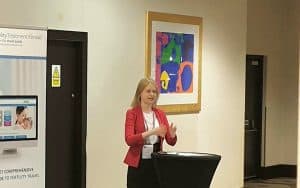2 May 2025
The Spanish government has this week (1 May 2025) cracked down on international surrogacy and banned embassies and consulates from registering children born through foreign surrogacy arrangements. Whilst surrogacy is prohibited in Spain, Spanish intended parents previously got round this by entering into international surrogacy arrangements and then registering their surrogate born child abroad with the help of foreign court rulings (e.g. from the US or Canada) recognizing them as their baby’s parents. Diplomats used to accept foreign court rulings and authorise the child’s registration in the Spanish Civil Registry, but this has now changed following a legal ruling by Spain’s Supreme Court in December 2024 which determined that this procedure was illegal.
Spain’s Prime Minister Pedro Sánchez’s left-wing government elected to tighten the ban on international surrogacy because they object to the practice over concerns about the rights of women and children. This follows Spain’s Supreme Court ruling in December 2024 which took a hard line and condemned surrogacy as “an attack on the moral integrity of the pregnant woman” and a practice that treats children as “mere commodities.” It also expressed concerns about the surrogate born child’s right to know their biological origins. Spanish regulations now stipulate that a foreign born surrogate child’s parentage can only be legally determined once the child has returned to Spain with his/her intend parents. Furthermore, only the child’s biological parent (usually the father) can be registered as the parent (e.g. with DNA evidence) and the other partner must apply to adopt the child after the surrogate mother has relinquished her legal rights. In short, Spain will no longer accept foreign court rulings as proof of parenthood of surrogate born children and intended parents will now need to navigate restrictive Spanish law carefully and obtain expert legal advice and assistance.
Spain’s new regulations send a firm message that surrogacy is illegal and they are making it more difficult for intended parents to enter into international surrogacy arrangements. Spain’s decision to crack down on international surrogacy follows similar moves recently in other countries. The Supreme Court in Argentina issued a legal ruling in November 2024 rejecting a gay male couple’s application for a new birth certificate that named them both as their surrogate born baby’s parents and urged Argentinian lawmakers to “correct the lack of regulation” in relation to surrogacy stating that surrogacy is a practice contrary to the law. Additionally, law enacted in early December 2024 prohibits Italians from undertaking surrogacy (both domestically and internationally) and they now face a prison term of up to 2 years and and fines of between €600,000 and €1m (£500,000 and £840,000) for breaching this restrictive legislation. In January 2025, President Trump issued an Executive Order on 20 January 2025 which declared that children born in the US to non US citizen parents would no longer automatically be entitled to US citizenship (albeit this is currently suspended pending multiple legal challenges). Furthermore, lawmakers in Greece announced plans in April 2025 to ban gay male couples and single men from conceiving children through surrogacy and restrict surrogacy only to women who need medically-assisted reproduction due to an “inability to carry a pregnancy”. To read more about recent developments in international surrogacy law click here.
International Surrogacy Law
Given rapid changes in global politics, laws and practices it is more important than ever for intended parents seeking to have a child through an international surrogacy arrangement to proactively manage the associated legal issues. Prospective parents must be vigilant about the risks and ensure they have a viable legal and practical action plan before embarking upon an international surrogacy journey.
Need an international surrogacy lawyer? We provide a range of specialist legal strategies and solutions to assist with the management of family building using assisted reproduction technologies, surrogacy law, legal parentage, parental responsibility, birth certificates and the upbringing of surrogate born children. If you are considering, or are part way through, a surrogacy arrangement in the UK or internationally and you would like to discuss your situation or you require specialist fertility, surrogacy and family law assistance please contact Louisa Ghevaert by email louisa@louisaghevaertassociates.co.uk or by telephone+44 (0)20 7965 8399.
To find out more about Louisa Ghevaert’s specialist legal, advisory and consultancy expertise click here.
To learn more about our specialist international surrogacy expertise click here.



Images: Louisa Ghevaert, CEO & Founder Louisa Ghevaert Associates




